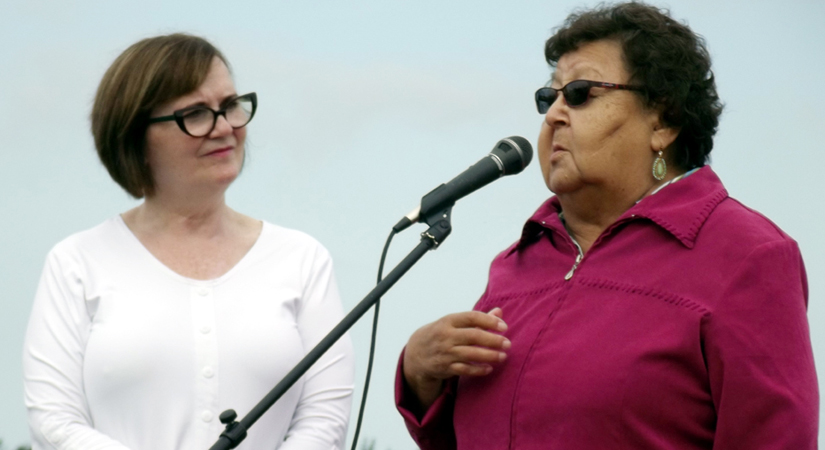-by Anne Farries
Sweetgrass smoke drifted, hands reached out and voices rose in song in West Mabou Friday, all to honour ancient friendship through a bit of "magic".
The gathering of about 60 people, meant to bolster camaraderie among Cape Breton’s founding cultures – Mi’kmaq, Acadian, and Gaelic – was the second of three across Inverness this summer, said Frances MacEachen, provincial Gaelic Affairs officer and co-organizer.
“It’s informal,” MacEachen said Thursday, ahead of the gathering. “The idea is for these communities to host the other groups and share a bit of history.”
“We … have lived for a long time side by side, and we would like to know each other better.”
The organizers are calling themselves MAGIC, an acronym for Mi'kmaq, Acadians, and Gaels of Inverness County.
They intend to foster cooperation toward the “common goals of maintaining our language, our culture, and our traditions,” MacEachen said.
“We all have distinct languages, and our history is very important to us.”
Friday, the groups met on the shoreline at the West Mabou Trailhead. Mi’kmaq elder, Tiny Cremo, smudged burning sweetgrass while elder Margaret Poulette, Fr. Bernie MacDonald, and county Warden Alfred Poirier spoke prayers in three languages.
Then the assembly moved to the West Mabou Hall for fiddle music, a milling frolic, and lunch.
“We welcome all to the table. There is a place for everyone,” said Bernadette Campbell of Port Hood, whose ancestors homesteaded near Mabou.
MacEachen explained, “What we’re doing is talking about the Gaels’ history, how we came to be in this land.”
“As we go through some historical points, we’ll have someone sing a song. A lot of the Gael’s history is contained in songs.”
That includes poetry and stories about the first meeting of the Mi’kmaq and the Gaels on the shores of Iona, told in Gaelic then translated into English.
Cheticamp saw the first of the three gatherings, which showcased Acadian culture and “was quite well received,” August 3rd, MacEachen said. “It was very special.”
The final one, hosted by the Mi'kmaq community, is slated for October 6th in Waycobah.
Like the first two, it will be open to all, MacEachen said.






